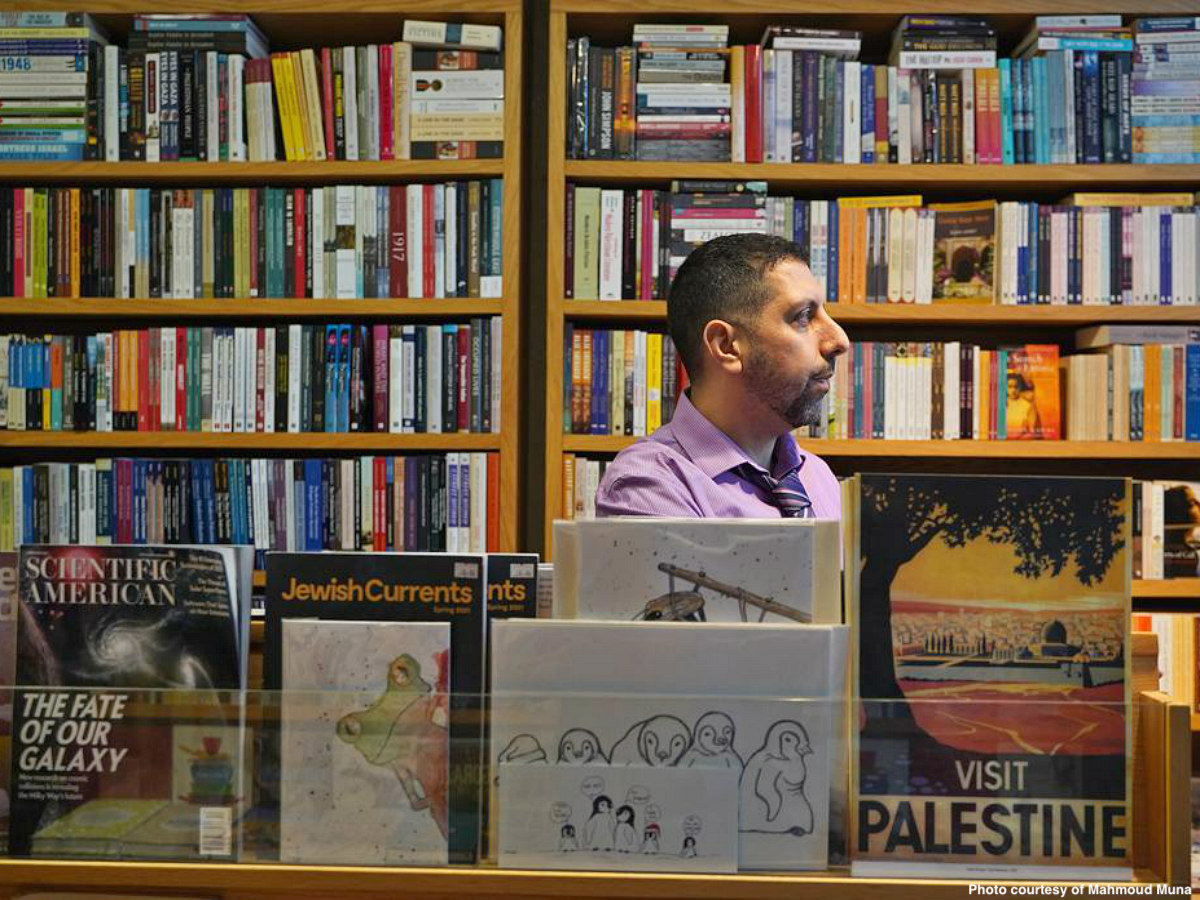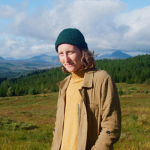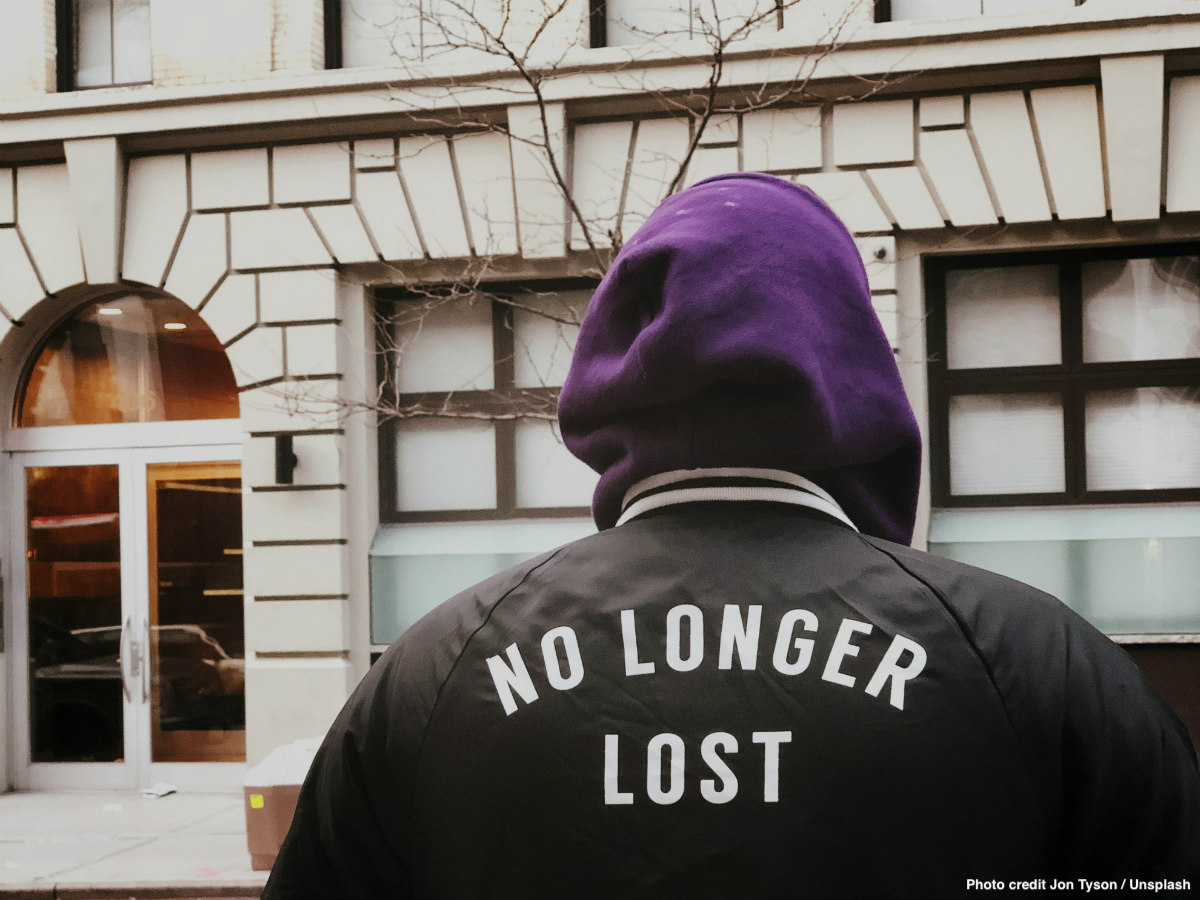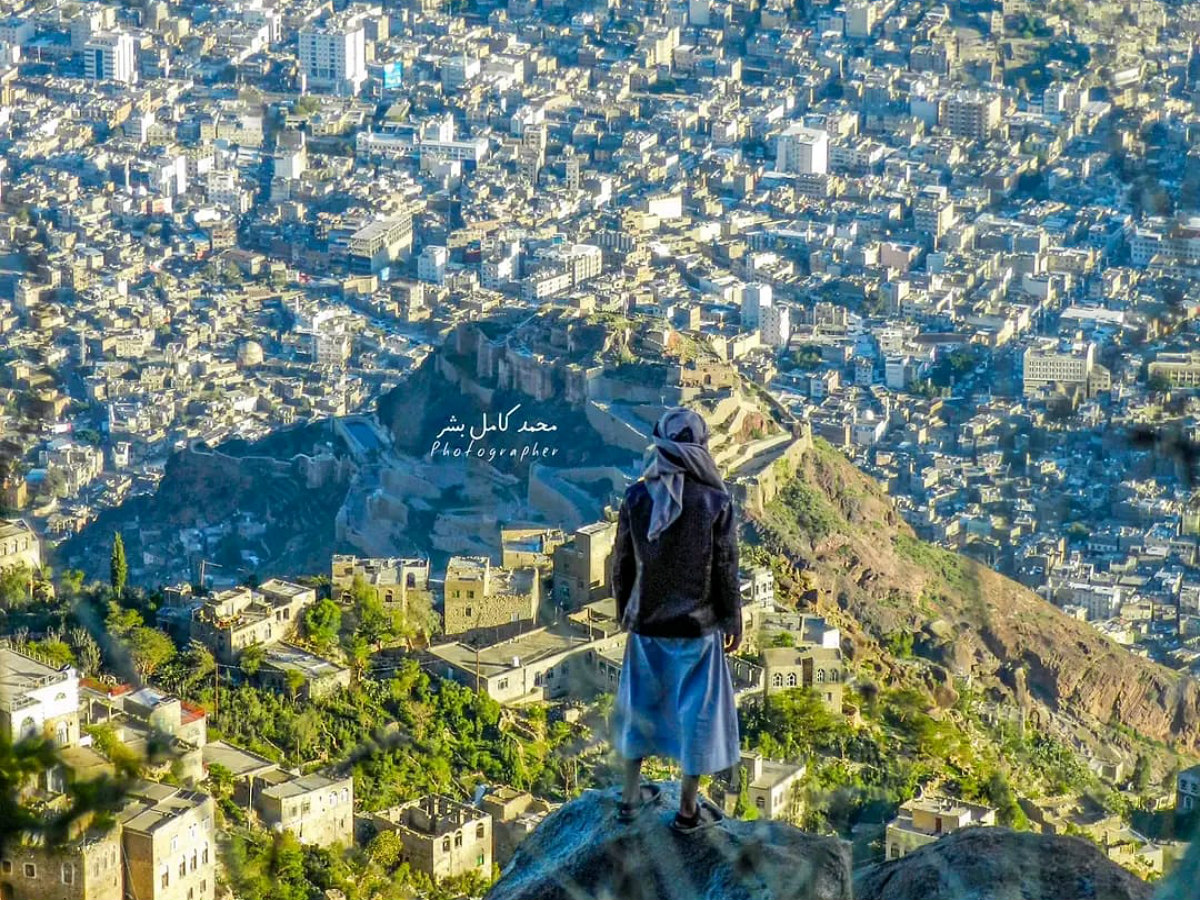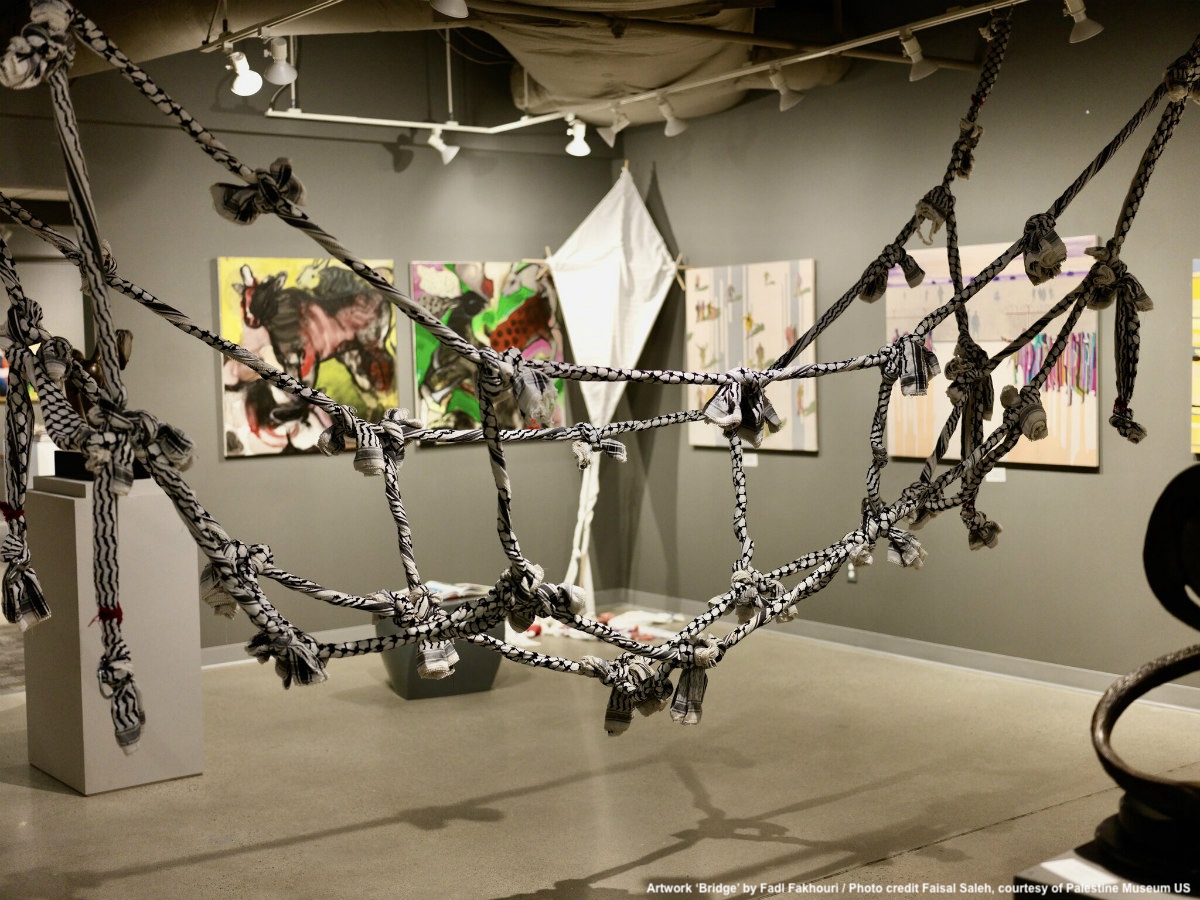It is a weeknight in East Jerusalem, and a crowd has gathered at the Educational Bookshop on Salah Eddin Street. At first, I recognize the description of the scene as one very much like the author events I coordinate at a bookshop in Baltimore, in the US. Guests mingle and browse the bookshop, sipping beverages from the bookshop’s trendy café. They’re settling in to hear from British journalist Matthew Teller about his latest book, Nine Quarters of Jerusalem: A New Biography of the Old City, which spotlights diverse and overlapping communities inside the city to complicate the ways that maps and narratives reduce the walled Old City into four distinct cultural quarters.
But the audience composition automatically raises the stakes on what otherwise might seem like a straightforward program, because some of tonight’s audience members at the bookshop have passed through an Israeli military checkpoint hindering people coming into East Jerusalem, the illegally occupied part of the city and self declared capital of the state of Israel.
The state of Israel’s annexation of East Jerusalem in 1967 distinctly evolved different policies for Palestinians than for those that live within Israel’s greenline. “We are a Palestinian organization operating under Israeli occupation,” states Mahmoud Muna, who is describing the event to me via Zoom. Others in the audience are local Palestinians, international humanitarian workers, and academics both local and international who have stopped by on their research visits: the bookshop in East Jerusalem is a meeting point.
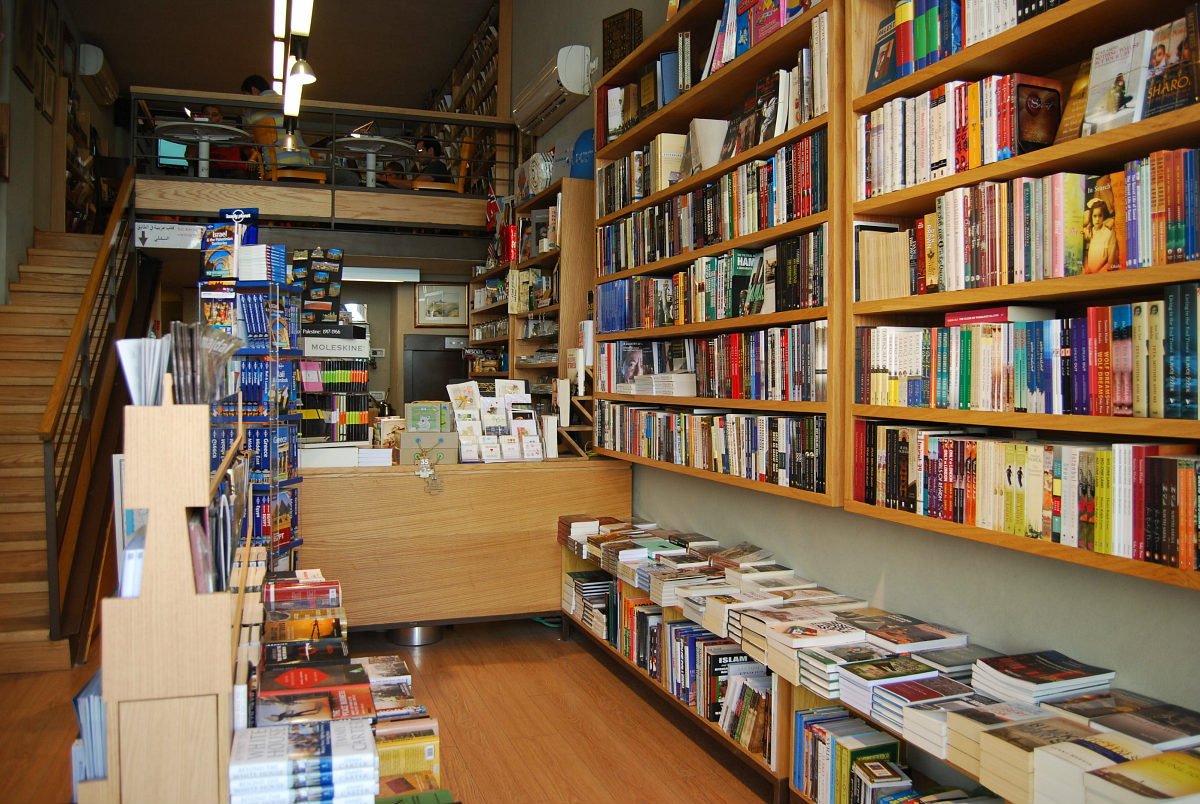
Muna is the youngest in a family of seven children who run the bookshop their father started in 1984. That year was one of thirty-nine years that Muna’s father, Ahmad, taught school in a United Nations refugee camp in Palestine. He taught in the morning, and opened the bookshop as a gathering space for his local community, and his own children, in the afternoon. “The school and the home and the bookshop were pretty much one thing,” remembers Muna, who attended the school where his father taught along with his siblings. As Ahmad witnessed his own teaching translating into social mobility for his students and their families, this experience solidified into a core belief and commitment of his shop. Education as an agent of change, on both individual and community levels, is “in the DNA of the bookshop,” Muna asserts.
And so, when Muna describes to me the audience for the event and calls it “a privilege to actually be in a place where the Palestinians and Israelis and internationals are meeting up,” there’s more to this statement than a basic inclination towards a peacemaking approach to activism.
Partway through Teller’s talk, an audience member stands. “I don’t know why there is so much politics in this event!” He exclaims. “I just came to listen to a book about the history of Jerusalem, and there is an agenda behind this book.” The tension in the room activates. Recounting this story, Muna smiles slightly, which surprises me. “Well, that’s fantastic!” he says. “The whole point of the book is actually to take you to these places [of discomfort] and to provoke you.” He reminds me “there is nothing that’s not political” when speaking about the history of his people in Palestine, from narrative framing to names of places, maps, and references to historical events. He also reminds me it is the responsibility of the bookshop in East Jerusalem, along with artists and intellectuals, to represent those people actively when governments are colonizing them.
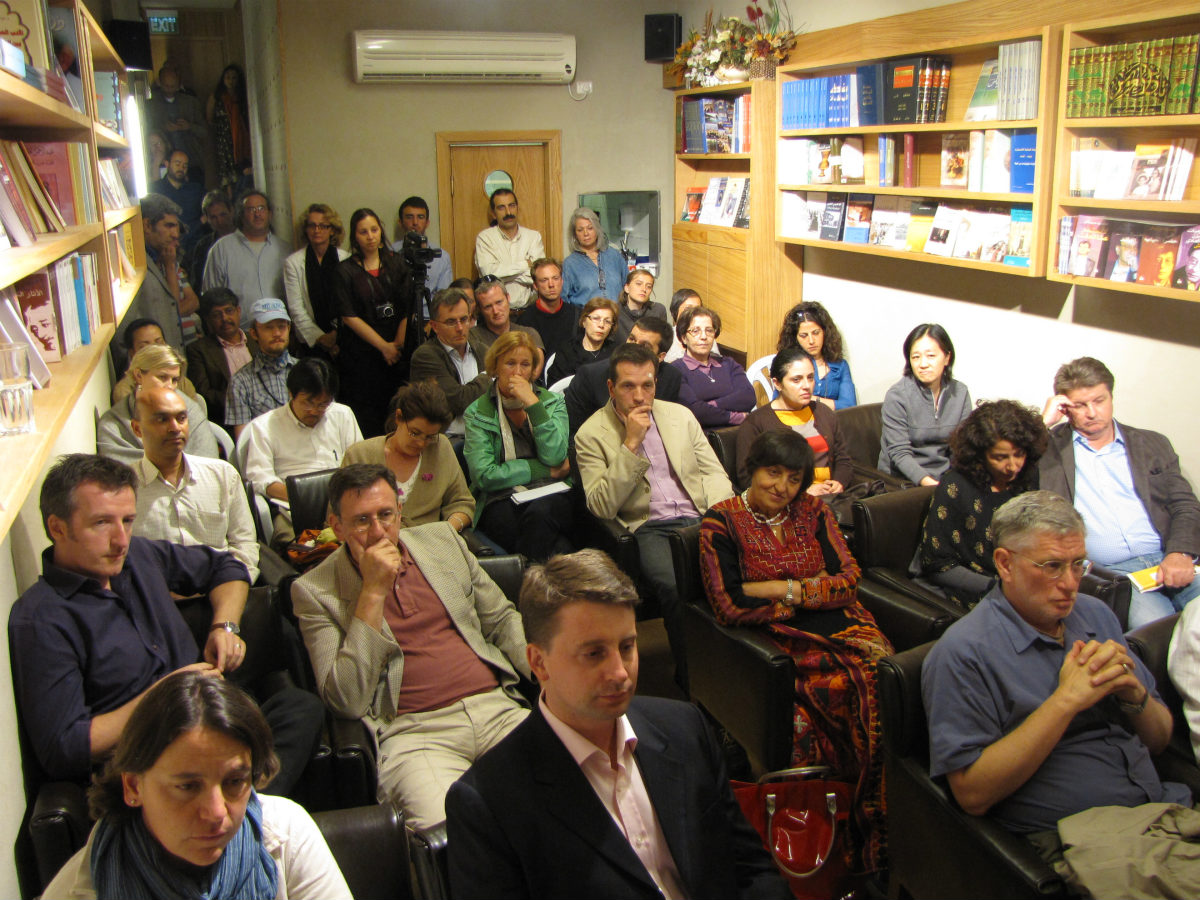
Unlike in the US, where a bookshop is often able to define their own relationships to politics, the context of occupation in East Jerusalem makes it impossible to create a theoretical separation between book culture and the political context of day to day life. It is not a choice whether bookselling is involved in political resistance. The Educational Bookshop participates in the deep anti-oppressive practice of building authentic community networks by engaging in all the real interpersonal interactions that books prompt us to have.
Each morning on his way to work, Muna notices the lack of municipal services in East Jerusalem. He carries his bag of garbage from his home on his bike to make up for the lack of garbage collection stations in the neighborhood. He calls this “a daily disgusting reminder… of the reality that we live in and the need for places like the bookshop to involve themselves in social, cultural, economic, political discussions that can hopefully affect this reality.”
Events are one mode of involvement, creating a physical space safe enough to experience discomfort when Palestinian perspectives unfold in a diverse audience. Conversations at the Educational Bookshop often approach lines of tension but have never escalated beyond verbal debate. Muna emphasizes an essential distinction between critiquing the Zionist ideology Israel was founded upon, and antisemitism. Whereas Zionism is a settler colonial movement that supports a national homeland for Jews in historic Palestine, antisemitism describes white Christian supremacy and the subsequent discrimination of Jews. Since Zionism was an initial response to the latter, the state’s reproduction of discrimination must be separated from Jewish identity. “We have to constantly be aware of [the fact that] critique of a political institution of a state has nothing to do with the ethnic group that belonged to that state,” Muna explains.
He cites this distinction as one reason why no one from the bookshop has ever had to physically intervene in a heated discussion. Those heated discussions are “exactly…where we should be,” he says. A successful event at the Educational Bookshop is “edgy,” “inconvenient,” and “provocative.” These are the qualities that help envision and define new realities for the future.
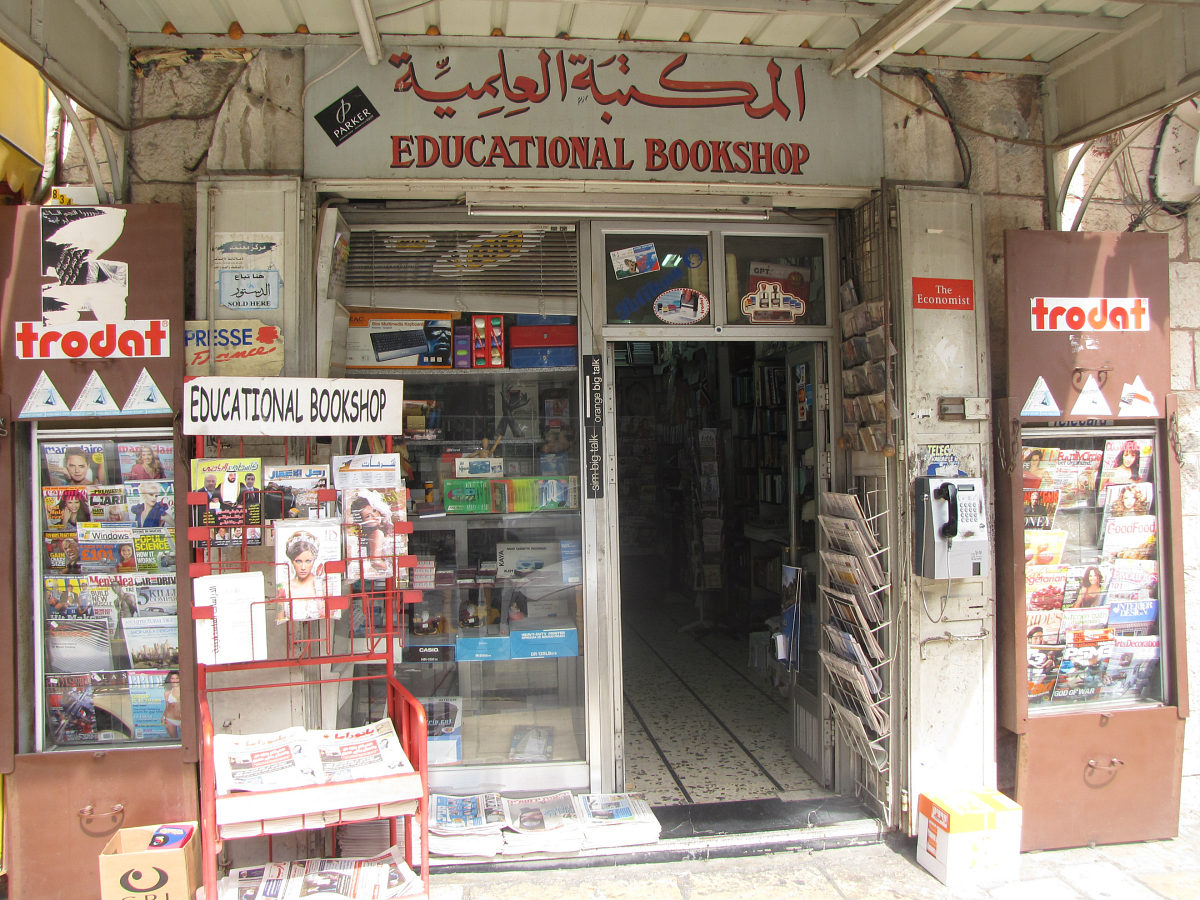
The ability to host events that have all these qualities—and safety—is a testament to the steady, attentive ways that the bookshop and its staff build relationships between individuals and organizations in their surrounding communities. Muna describes a typical arc of a regular visitor to the shop: they might come in looking for a romance, and receive such an excellent recommendation that they return, and return again, over time looking forward to their conversations with the booksellers and becoming more open to the shop’s mission to spread Palestinian culture.
Eventually, the romance-lover leaves the shop with a novel by a Palestinian writer or a book on the history of Palestine. Booksellers at the Educational Bookshop are master connectors of people and stories, who have deep personal relationships with the specific neighborhood, the broader city and context, and the clientele—a quality impossible to replicate by algorithm or mere transaction. These relationships are what have sustained the store during Covid, with customers calling and requesting stacks of books at a time, willing to read whatever the shop had in stock. And this mutuality, Muna clarifies, is why “this bookshop is not just a community bookshop. It becomes a community center.”
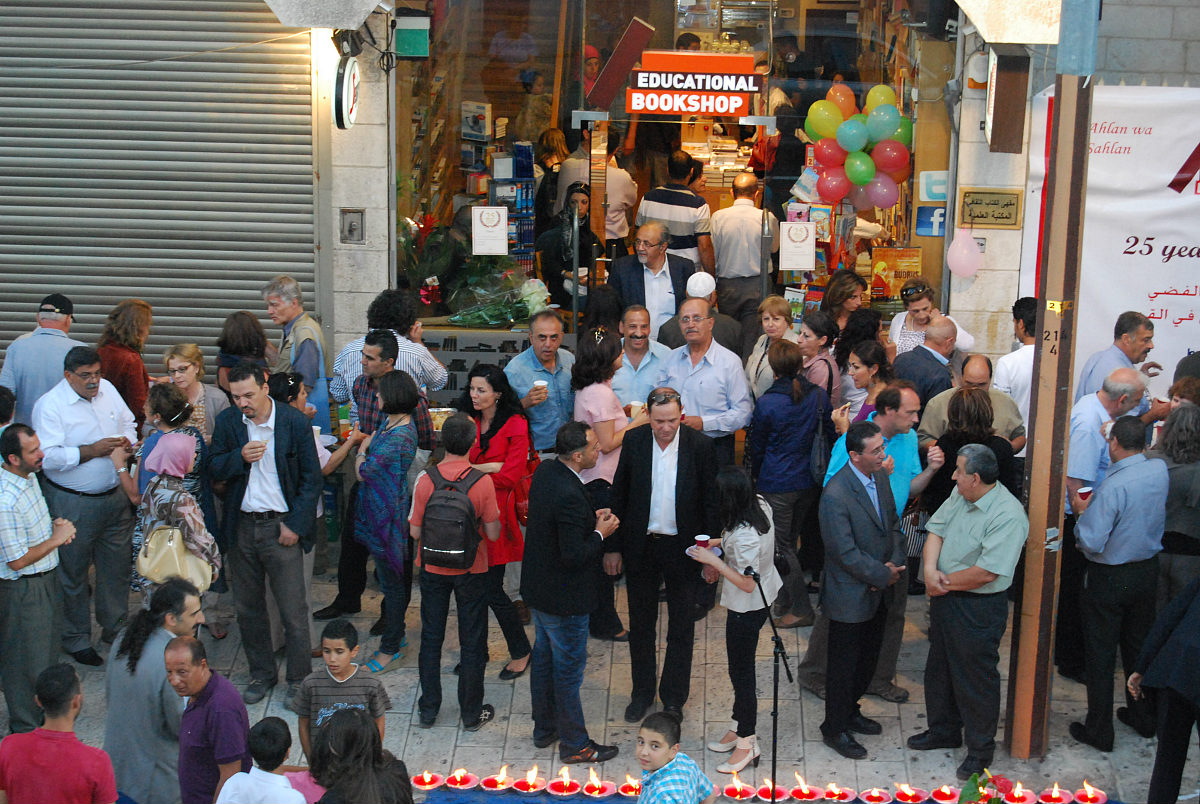
I see, on the Educational Bookshop’s Instagram feed, a post where neighbors gather in the shop to watch the Morocco vs. Spain World Cup match on the store computer. There’s a coffee bar in the shop to facilitate lingering, and pleasant associations with books and stories. And while the shop prioritizes and displays a wide range of Palestinian literature, it also makes room for a substantial selection of contemporary literature. Muna grins as he describes the chattiness of booksellers eager to offer curated options that might please a reader. The browsing atmosphere is lively and warm, and this, he explains, reflects a major goal of the Educational Bookshop: “to keep people’s sanity.”
Under Israeli occupation, he says, “nothing really makes sense. And if you completely lose your… sense of logic and you put yourself under the reality of Israeli oppression, you will become crazy.” He cites conversations, whether formally at book launches or informally on the shop floor, as a method of staying grounded, of staving off despair. Speaking the Palestinian present and future aloud, he believes, is in everyone’s mutual interest, “regardless of what solutions or setup we have in the future. I don’t think it’s helpful to have people who are hopeless or in despair or mad.”
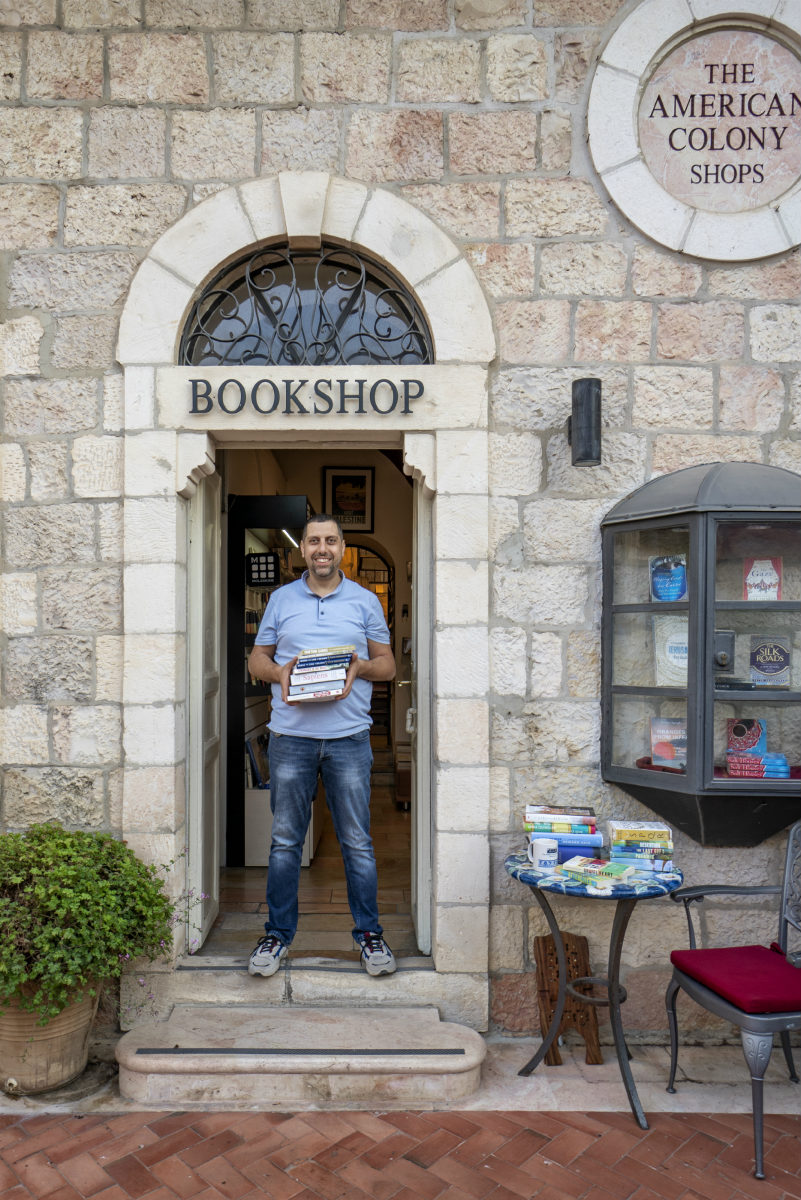
The bookshop isn’t alone in this vision. It joins a strong network of community partners who are equally invested in the continued vibrancy of local Palestinian culture. Muna and The Educational Bookshop are involved in the Kalimat Literature Festival as well as collaborations with the theater, the cinema, the music school, academic and political institutions, and schools. Partner organizations come from a wide range of interests and disciplines; the baseline requirement for partnership is a shared commitment to anti-occupation and anti-oppression work.
The true evidence of the success of the Educational Bookshop, though, isn’t a question of scale. There is one moment that Muna describes as “absolutely magic”: when locals bring their friends from abroad to the shop. While the visitors may also have seen the refugee camp, the wall, and the other signs of destruction, the bookshop is the place where people in his community can feel a real sense of pride. When they smile and show off the shop to their friends, “It really is magical. And it is our real investment in the community.”
In addition to The Educational Bookshop, Muna and his family operate two other bookshops in East Jerusalem: The original Educational Bookshop, which is nowadays mainly a stationary store, and a third one in the American Colony Hotel.
